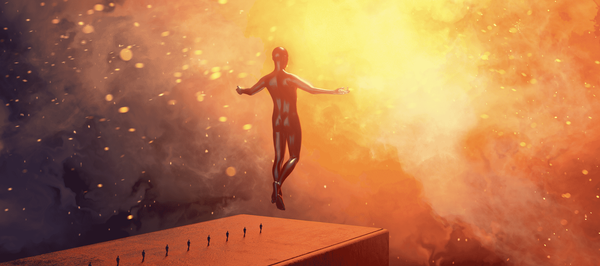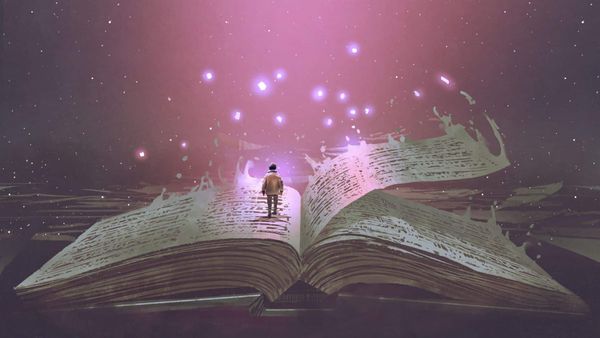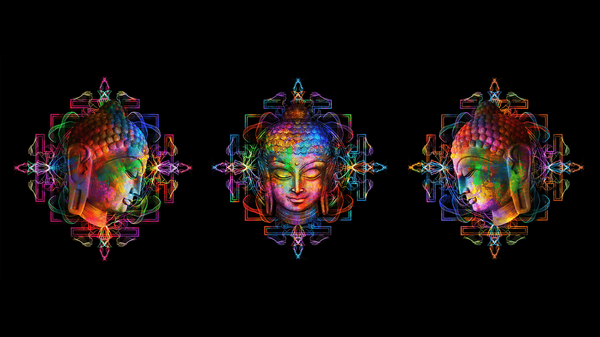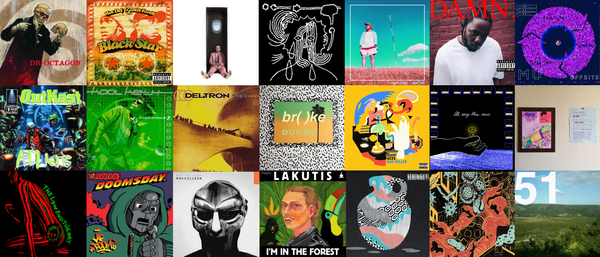Nat Dollin • • 4 min read
Embrace Your Personal Apocalypse if You Want to Evolve as an Artist and Human Being
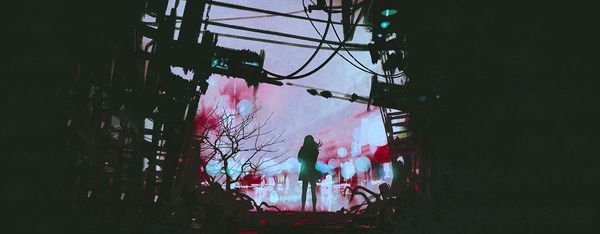
Western society tends to offer recognition based on results rather than efforts.
We frequently overlook the toils undertaken on the way to greatness, as we stare up at some Iconic Successful Artist with a mixture of admiration, aspiration, and despair.
It’s easy to ignore the investigation into Iconic Successful Artist’s journey, when what they’re presenting us with now is just so goddamn impressive. The thing is, almost all artists, creators, and pioneers will proffer the same fundamental message regarding sacrifice for success: the value is entrenched in the process, and oftentimes coming undone is a vital part of the story.
We’re all too familiar with the tortured artist archetype, and many claim that breakdown and beauty go hand in hand. In spite of this, we quite often exercise resistance towards actually experiencing the breakdown for ourselves. Netflix, beer, self-help books, ayahuasca – the abyss of band-aids for our perpetual bullet wounds runs deep, helping us at any time of day or night to find the answers, avoid the answers, or just. feel. better. But in the midst of all this ‘doing,’ are we missing out on a potentially crucial aspect of our development?
Pain.
We are very good at running away from anything that doesn’t feel nice. Pain has all sorts of negative connotations, and we’ve calcified our repulsion to its implied discomforts. However, as Steinbeck elucidates, “What good is the warmth of summer, without the cold of winter to give it sweetness?” Even beyond this basic principle of duality, there’s the notion that true growth—honest evolution—occurs most profoundly in the wake of pain, struggle and confusion. And perhaps we could benefit more from this process if we weren’t so afraid to simply sit with it.
Pema Chödrön encourages us to aspire to know more fully the place where we reach our limit. That is, “to neither indulge nor repress” ourselves in that fight-or-flight moment of terror, but to lean in towards a deeper understanding. In doing so, “a hardness in us will dissolve” and we can begin to prepare ourselves for the astonishing expanse of authentic creativity.
“For a seed to achieve its greatest expression, it must come completely undone. The shell cracks, its insides come out, and everything changes. To someone who does not understand growth, it would look like complete destruction.”
— Unknown
Strength via Scorching
Talking recently with a friend from Cape Town, I came to learn of veldfires, an ancient method of environmental management in which people intentionally burn large chunks of land in order to cleanse them. The method is used today in South Africa as an integral tool for replenishing and strengthening the natural landscape.
This process is essential not only for the prevention of wildfires but also in order to uphold their impressively attuned ecosystems (about 70% of which are fire-adapted and actually need to burn in order to maintain their ecological integrity.) Scorching the land is a vital cleanser. Not only does it burn away that which is no longer needed, but the heat forces existing plant pods to burst and disperse amongst new soil until one day, through the charcoal-black ground, little green sprouts of hope start shooting up, robust and renewed.
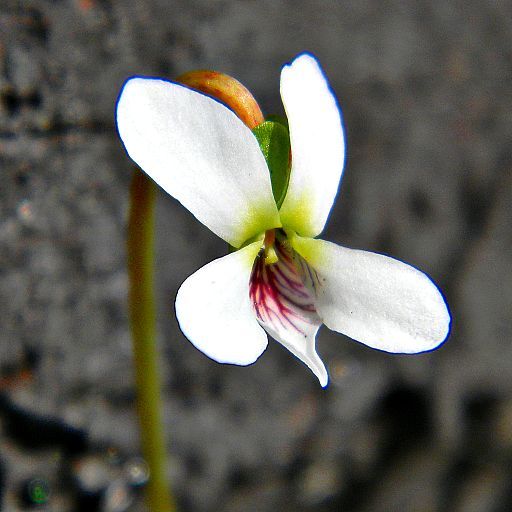
Of course there are casualties in the process—pain and suffering, loss and heartbreak—but the strength and integrity of the field is rooted not in the clean, auspicious outcome, but in this complete unfolding of events in their excruciating entirety.
Appreciating the Value of the Process
The burning of the metaphorical field, the discombobulation, is an essential aspect of sifting and relocating the necessary ingredients from our past and present into a vibrant and resilient future. Writer Humphrey Trevelyan reveres the process of being challenged, of being shaken to our core, referring to this disequilibrium as a “state of inner tension [that] is the source of artistic energy.”
For those who might not see themselves as artists, the same truth is offered through the phrase “necessity is the mother of invention.” Basically, we don’t create until we have to. We don’t reveal our dormant strength until we feel overwhelmed by our weakness.
And yet there is a softness that arises from grappling with our weaknesses; a malleable quality that increases our capacity to “achieve [our] greatest expression” as we move forward. Whether it’s warming up our muscles so we can stretch them out, kneading clay so that we can mold it into a pot, or melting butter so that we can spread it on our toast, molecular transformation in aid of evolution (personal or primordial) is a universal principal. It affects everything from the minute to the monumental.
Gibran knows it: “Is not the cup that holds your wine the very cup that was burned in the potter’s oven?”
The RZA knows it: “So love, like wisdom, dissolves you and then resolves you.”
Do we know it?
It may be a simple (not necessarily easy) case of accepting that we rarely know in the moment whether something is harming or helping us. In fact, we rarely know anything. But if we can loosen our grip on restricting labels such as “good” and “bad,” we may find that something seemingly awful is merely a stepping stone to unlearning a plethora of assumed but unquestioned knowledge. We may discover that what was once crushing has in fact opened us up to our own unique wellspring of genuinely remarkable, original and aspirational creativity.
—
Complement this article with this and this if you’d like to keep exploring the principle of “unlearning” and how to liberate your intrinsic creativity. Or, if you’d prefer a deeper dive, refer to these recommended books:
— When Things Fall Apart by Pema Chödrön— The Prophet by Kahil Gibran— The Tao of Wu by The RZA— Travels with Charley by John Steinbeck

